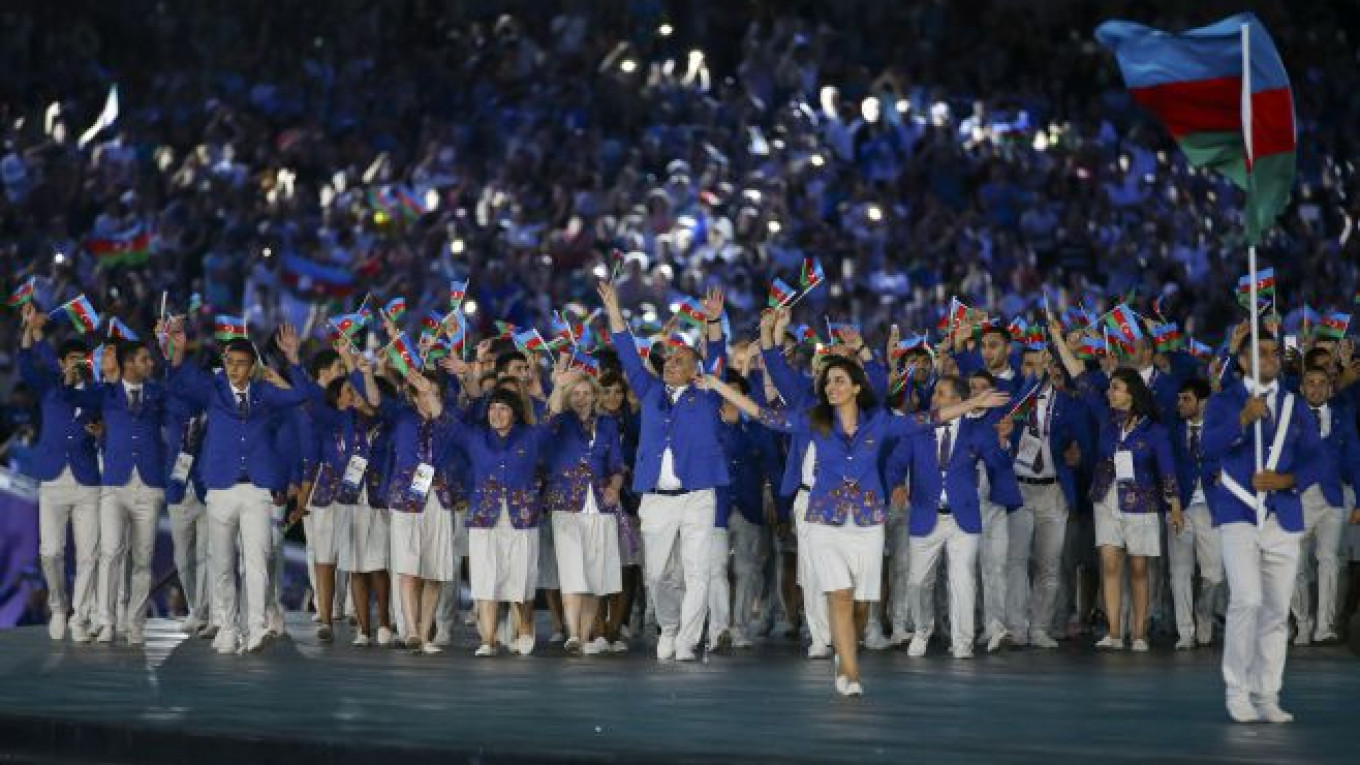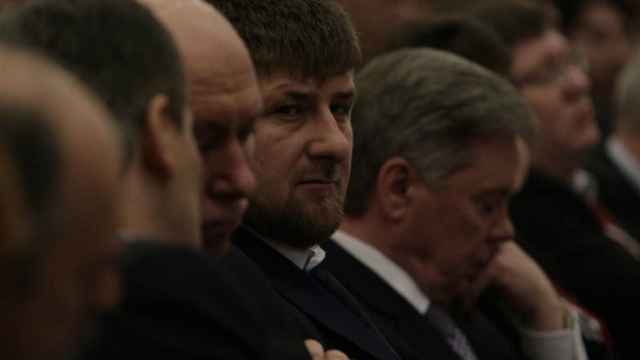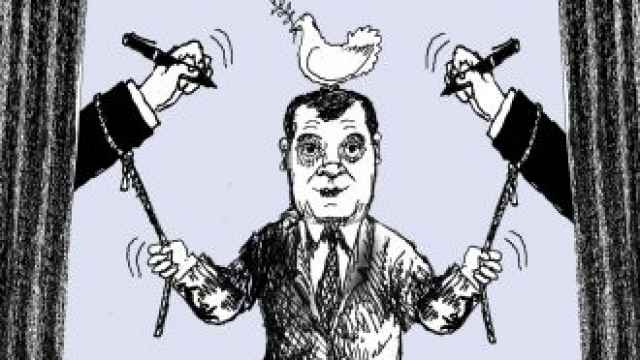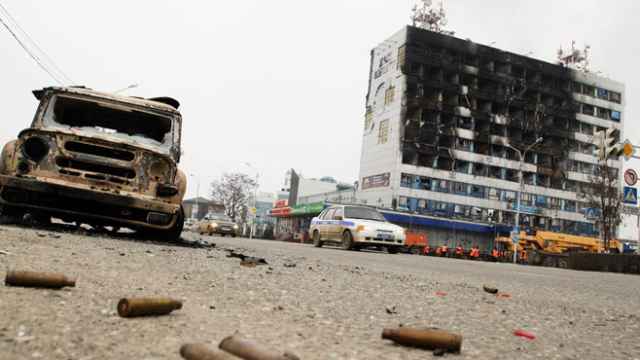If Azerbaijan's President Ilham Aliyev had intended the inaugural European Games in Baku to be the occasion on which the world finally showered admiration and attention on his country, he will be disappointed.
The sporting event, with an extraordinarily lavish opening ceremony, has received only light media coverage across Europe, while a lot of the reporting on Azerbaijan has focused on its dismal human rights record. At least three of the activists and journalists who campaigned against the games or who highlighted its shortcomings — Khadija Ismayilova, Rasul Jafarov, and Leyla Yunus — have been jailed in the past year.
The Western media never takes kindly to mistreatment of journalists and the banning of reporters from the Guardian newspaper and others produced more bad publicity. Lady Gaga, who was reportedly paid $2 million, did perform — but at another concert halfway across the world Bono spoke up in favor of six jailed Azeri human rights defenders.
President Vladimir Putin, who missed the Russia Day holiday on June 12 to attend the opening of the games in Baku, will know how President Aliyev feels. Last year he evidently felt insulted by the large number of no-shows to the Sochi Winter Olympics. That pique against the West may have helped propel Putin into his aggressive behavior in Ukraine, once Sochi was over.
No major politicians from the European Union made the trip to the European Games. The three highest-profile European leaders who made the trip were probably the most authoritarian rulers in Europe: Putin, Turkey's Recep Tayyip Erdogan, and Belarussian President Alexander Lukashenko. Two Central Asian autocrats, the leaders of Turkmenistan and Tajikistan, also showed up to an event in which their countries were not actually participating.
When Putin and Erdogan met, the Turkish leader expressed his surprise on camera about the EU no-shows, to which Putin responded "As an EU accession candidate, Turkey represented the whole of the European Union."
The EU no-show reflects a cultural divide which was also displayed in the recent FIFA row. The European democracies are increasingly reluctant to put up money for big sporting events. When they do hold them, they try to make it all about public participation from below.
Authoritarian countries by contrast are keen to host these big sporting galas and have a grand patriotic spectacle that rallies the public around the flag. When things go off script, the authorities are furious. (Azerbaijan's foe Armenia learned the same lesson last week when the Armenia-Portugal soccer game in Yerevan was disrupted by a young man dashing on to the pitch, protesting about his father, a jailed radical opposition leader.)
So the reaction to the games will only redouble Aliyev's feeling that Western nations do not show him due respect. The question now is whether this further deepens the split between Azerbaijan and the West, which has been obvious since Aliyev's third term in 2013.
Azerbaijan is now rivaling Russia for the status of the most anti-American nation in the former Soviet space. In the last month and a half the government of Azerbaijan has launched a personal attack on U.S. Secretary of State John Kerry, accusing him of running an "anti-Azerbaijan campaign" from his office in Congress. It has ordered the closure of the OSCE office in Baku. It has accused U.S. organizations like the National Endowment for Democracy of trying to instigate a coup d'etat in Azerbaijan.
The post-games calendar does not promise much of a respite from this downward spiral. A number of events will invite more critical statements from Western governments. There are fears of another hot summer on the cease-fire line around Nagorno Karabakh. The trial of three well-known pro-Western figures in Baku on preposterous espionage charges is due to take place in the late summer or early fall. And parliamentary elections, with all the associated controversy, are due in Azerbaijan in November.
Despite Putin and Lukashenko's visit to Baku, it is unlikely that Azerbaijan is moving comprehensively into the Russian camp. A more likely model is prickly isolation with Russia as a more privileged partner. But the ironic result of the European Games looks like being an even less pro-European and pro-Western Azerbaijan.
Thomas de Waal is a senior associate at the Carnegie Endowment for International Peace. This comment originally appeared on Carnegie's Eurasia Outlook blog.
A Message from The Moscow Times:
Dear readers,
We are facing unprecedented challenges. Russia's Prosecutor General's Office has designated The Moscow Times as an "undesirable" organization, criminalizing our work and putting our staff at risk of prosecution. This follows our earlier unjust labeling as a "foreign agent."
These actions are direct attempts to silence independent journalism in Russia. The authorities claim our work "discredits the decisions of the Russian leadership." We see things differently: we strive to provide accurate, unbiased reporting on Russia.
We, the journalists of The Moscow Times, refuse to be silenced. But to continue our work, we need your help.
Your support, no matter how small, makes a world of difference. If you can, please support us monthly starting from just $2. It's quick to set up, and every contribution makes a significant impact.
By supporting The Moscow Times, you're defending open, independent journalism in the face of repression. Thank you for standing with us.
Remind me later.








